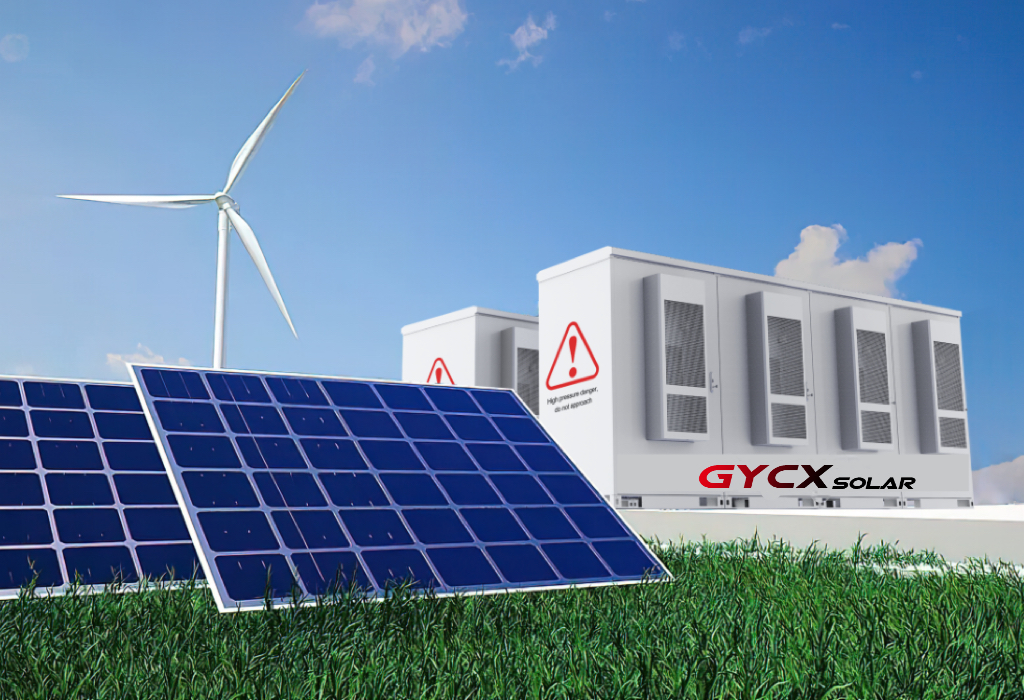
Industriel et Commercial (je&C) energy storage systems are designed for the energy management of industrial and commercial enterprises and can be scaled according to individual needs. These systems range in capacity from 20 kilowattheures (kWh) to megawatt-hours (Mwh) with high performance and capacity to meet a wide range of needs for commercial use. Par exemple, they can be used in electric vehicle charging stations, photovoltaic power stations, industrial parks and large supermarkets.
These battery energy storage systems are not only reliable and safe, but can also be used in combination with solar energy systems, and can even replace traditional fossil fuel power plants to ensure that enterprises get a stable and efficient energy supply.
Learn The Basics of Industrial And Commercial Energy Storage
Industrial and commercial energy storage systems play a vital role in the energy management of enterprises. By storing electricity, these systems can help businesses continue to operate during power outages, reduce energy bills and achieve greener operations.
To understand the basics of these systems, you need to understand the different types of energy storage systems, their application scenarios, and the benefits they bring.
There are several types of energy storage:

Chemicals (par exemple. batteries)
Thermal energy (par exemple. ice storage air conditioning)
Machinery (par exemple. flywheel)
electrochemical capacitor(EC)
Each type has its own advantages and best use scenarios, with chemical storage (such as lithium-ion batteries) being the most common storage of electrical energy.
Stockage d'énergie systems can be used in the following applications:
Peak adjustment to reduce energy costs
Shift the load and use energy during off-peak hours
Renewable energy integration to stabilize the grid
Backup power supply ensures uninterrupted operation
Benefits of implementing an energy storage system:
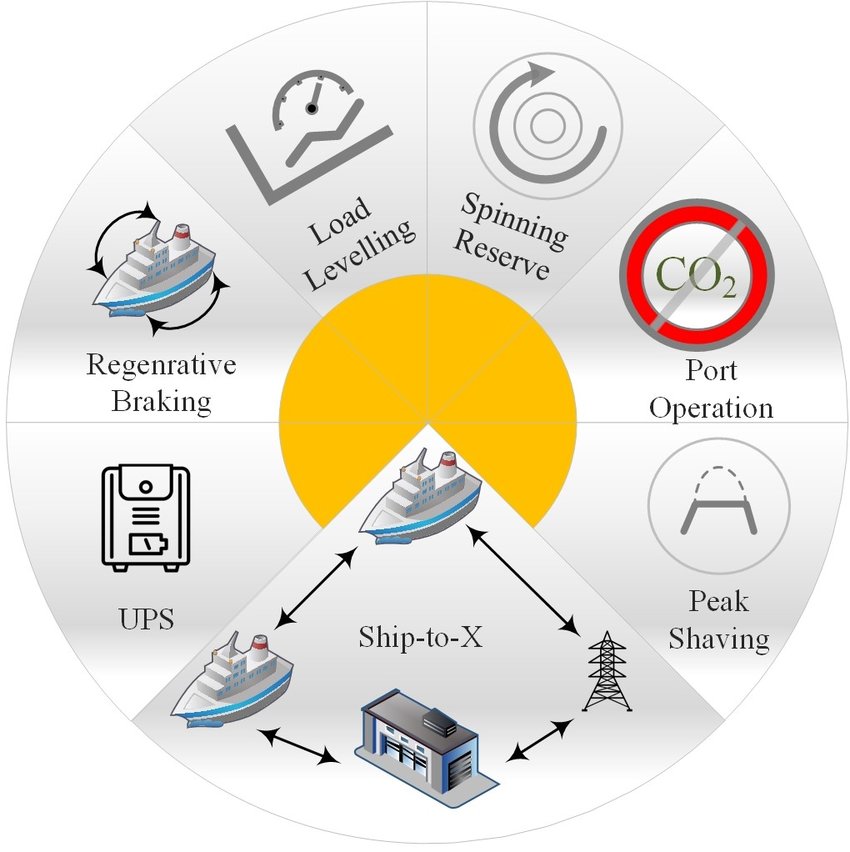
Cost savings through improved energy management
Improve power quality and grid stability
Improve energy reliability and security
Reduce your carbon footprint by using renewable energy
Industrial and commercial enterprises need to assess their energy needs in order to choose the right energy storage technology. This type of investment is usually preceded by a feasibility study to ensure that the new system is compatible with existing systems and to predict its economic and environmental impacts. En termes simples, energy storage is a smart energy management strategy tailored to meet the unique needs of your business.
Advantages of Industrial And Commercial Energy Storage Systems
1. Box-type integration, haute intégration, accurate measurement, real-time monitoring, safe and reliable operation, installation simple.
2.PACK class new fire protection system, effectively prevent the cell spontaneous combustion, sûr et fiable.
3. The energy management system (SME) realizes the power dispatching and intelligent load adjustment of the station and yard, and supports remote monitoring and operation and maintenance.
4. Participate in power demand side response during peak hours.
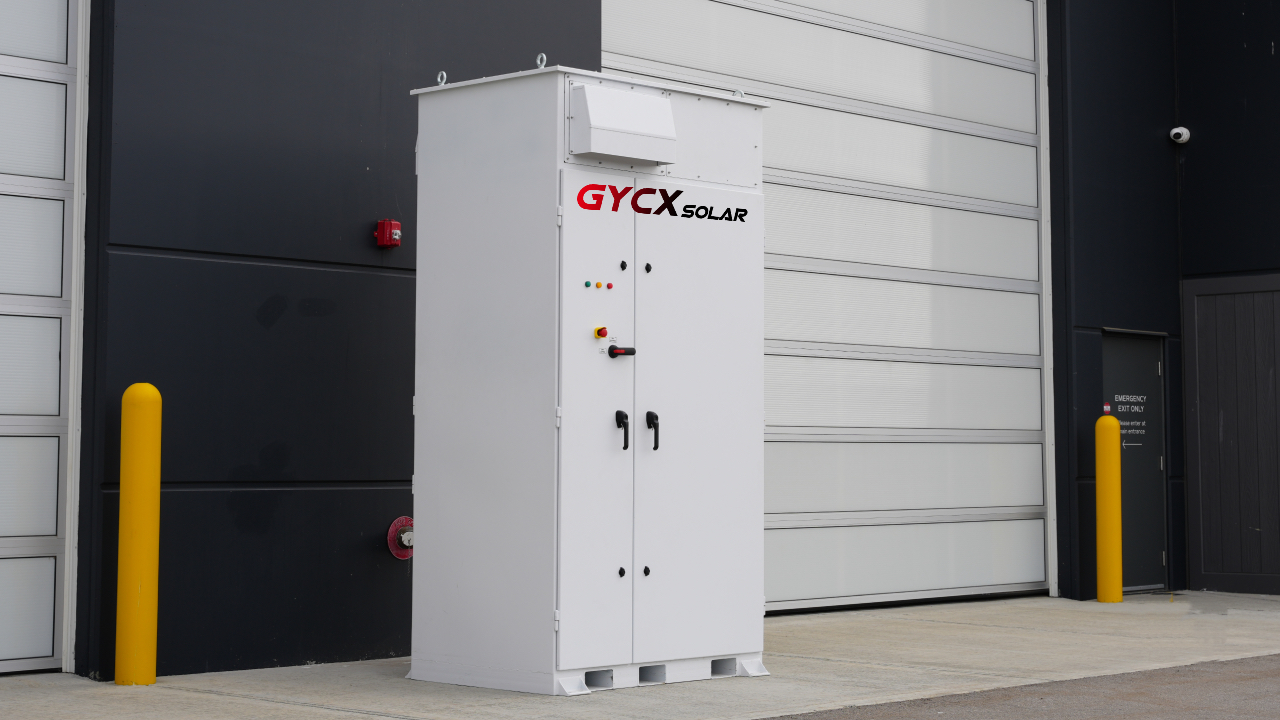
Uses of Energy Storage For Industry and Commerce
Industrial and commercial energy storage systems have great potential to improve the efficiency and reliability of industrial and commercial environments. These applications cover a range of uses that meet the specific needs of each industry.
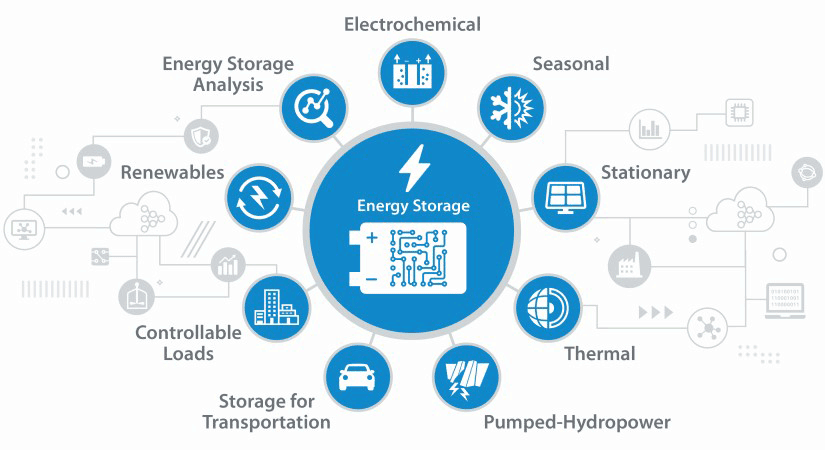
Peak balancing
During peak hours, companies can use stored energy to reduce the strain on the grid and also help companies reduce peak electricity bills.
Déplacement de charge
Companies can store energy when electricity prices are low and use these stored energy when electricity prices are high, shifting energy consumption from high-cost periods to lower-cost periods.
Renewable energy integration
Energy storage systems can be used in conjunction with renewable energy sources such as solar or wind, so that companies can ensure a stable power supply even if these energy sources are unreliable.
Backup power
In the event of a power outage or disruption, the energy storage system can provide critical backup power. De cette façon, businesses can continue to operate normally and will not be affected by sudden power outages.
Grid services
Industrial and commercial energy storage systems can help keep the grid stable. They can provide services such as frequency regulation, voltage support and additional capacity to ensure the smooth operation of the grid.
Energy management
Advanced energy storage solutions provide better energy management capabilities. Companies can use these systems to optimize energy use, reduce electricity bills, and achieve more sustainable development goals.
Microgrid applications
Energy storage is a core component of microgrids, which can operate independently of the larger grid to provide localized power generation and distribution.
Electric vehicle charging support
With the increasing popularity of electric vehicles, especially the increase in commercial fleets, energy storage systems become very important. Energy storage can help manage the high load demands of EV charging stations.
These uses are changing the way businesses think about their energy use, providing innovative solutions to improve operations and reduce their environmental impact. À mesure que la technologie progresse, the breadth and depth of these applications will continue to expand, further enhancing the role of energy storage systems in the industrial and commercial sectors.
What are The Costs of Installing Industrial And Commercial Energy Storage Systems?

The main costs of installing industrial and commercial energy storage systems can be summarized as follows:
Equipment acquisition cost
This is the cost of purchasing the core equipment for energy storage, such as battery packs, systèmes de gestion de batterie, and energy management systems.
Frais d'installation
Integrating the various pieces of equipment together and making sure they work properly requires a professional engineering team. The salaries of these teams and the materials needed to install the equipment all contribute to the cost of the installation project.
Operation and maintenance cost
To maintain the normal operation of the energy storage system, it is necessary to carry out daily operation and maintenance, including charge and discharge management of the battery, regular inspection and maintenance of the system.
Land costs
For large industrial and commercial energy storage systems, additional land may be required to house the equipment. The cost of buying or leasing these lands is also part of installing the energy storage system.
How to Choose Industrial and Commercial Energy Storage?
When selecting energy storage solutions for industrial or commercial applications, technical specifications and economic impact must be considered. Here are some important factors to consider:
Understand your energy needs
Calculate your facility’s energy consumption patterns, peak demand periods, and energy efficiency improvement potential. Estimate the energy storage needed to meet your needs during peak demand or power outages. Estimate how much storage you’ll need to meet those needs during peak demand periods or power outages, and identify where you can improve energy efficiency.
Evaluate different types of energy storage technologies
Compare various energy storage technologies, comme les batteries au plomb, batteries lithium-ion, batteries à flux, volants, and thermal energy storage. Look at their longevity, efficacité, Cycle de vie, maintenance requirements and environmental impact.
Consider scalability and flexibility
Choose a system that can easily scale up or down in response to changing energy needs. Ensure that the system is compatible with potential future energy or grid changes.
Assessing economic viability
Analyze the upfront purchase and installation costs of the energy storage system, as well as the later operating expenses. Calculate the amount of money you can save by reducing electricity demand charges or participating in a demand response program. Estimate how long it will take the energy storage system to pay for itself and the return on investment (Retour sur investissement).
Regulatory and incentive programs
Research local regulations, building codes, and incentive programs that may influence your choice. Check out the utility’s interconnect policies for energy storage systems and what financial incentives are available.
Supplier reputation and support
Research the reputation of potential suppliers and manufacturers to ensure they have a track record of providing reliable and high quality products. Evaluate warranties, service agreements and technical support provided by suppliers to ensure good maintenance and assistance after purchase.
Making informed decisions about industrial and commercial energy storage requires a thorough analysis of current and future energy needs, an in-depth study of technology options, and close attention to economic factors, including costs, returns, and financial incentives.
The Growing Importance of Energy Storage
At a time when renewable energy is increasingly indispensable to meeting the world’s electricity needs, the fundamental role of energy storage in industrial and commercial environments has never been more prominent. Energy storage helps to achieve a stable and reliable electricity supply, mitigating the inherent intermittency of renewable energy sources such as wind and solar.
The ability to store energy is essential for:
Balance supply and demand to ensure power grid stability
Improve the efficiency and reliability of energy systems
Reducing the need for backup power plants, which are usually carbon-intensive
Achieve peak regulation, which releases stored energy when demand (and therefore electricity bills) is at its highest
Facilitating the integration of distributed energy sources (LE)
With advances in technology, there are now a variety of energy storage solutions available, from batteries to thermal energy storage and mechanical systems, capable of meeting different industrial and commercial needs. These advances, coupled with rising electricity prices, carbon-neutral targets and policy incentives, are driving the energy storage industry.
What is The Future of Energy Storage?
The field of industrial and commercial energy storage is evolving rapidly, with numerous advances on the horizon. À l'avenir, the field is expected to witness:
Increasing capacity and efficiency: We will continue to work on developing batteries with higher energy density and faster charging speeds. Solid-state battery research and advances in lithium-ion technology are expected to significantly improve the performance and capacity of energy storage systems.
Diverse energy storage solutions: While lithium ions dominate the market, alternative energy storage technologies such as flow batteries, compressed air energy storage (Caes), and thermal energy storage are gaining traction, which may offer more diverse storage options to meet specific industrial needs.
Integration with renewables: With the growth of wind, solar and other renewable energy sources, managing energy storage demand for intermittent supplies will become even more important, which will drive further integration of storage systems with renewable energy infrastructure.
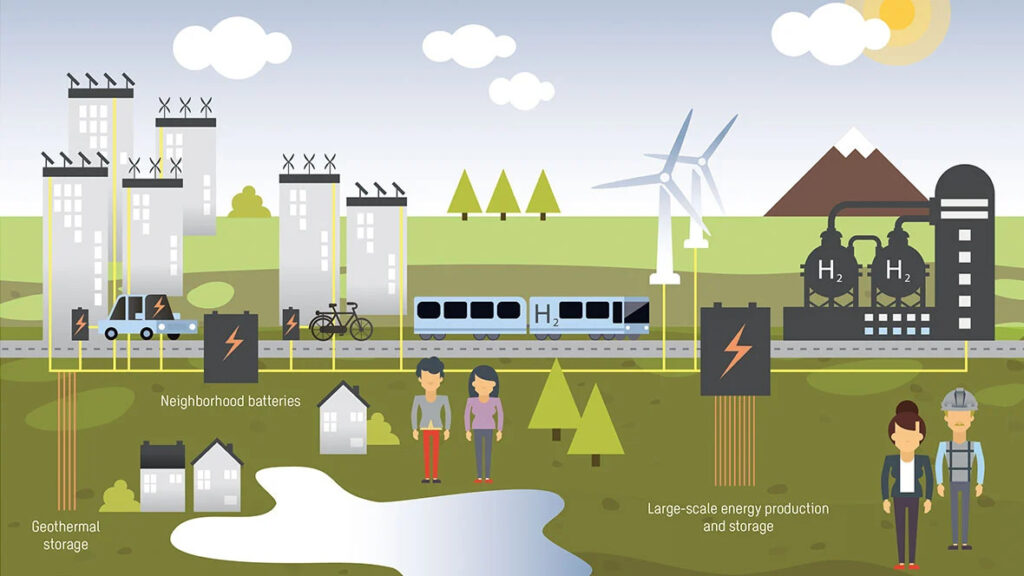
Smart Grid and AI Integration: The combination of artificial intelligence (AI) and Internet of Things (IoT) technologies will make energy storage systems more efficient and responsive. Ai algorithms can predict energy consumption patterns and optimize the storage and release of energy to meet demand.
Regulatory support and incentives: Governments are expected to introduce more policies and incentives to promote the adoption of energy storage and boost the industry.
Cost reduction: With economies of scale and technological innovation, the cost of energy storage solutions is expected to decrease, making them easier to adopt in the commercial and industrial sectors.
Sustainability focus: In response to environmental concerns, the recycling and sustainability of energy storage systems will receive increased attention. This could lead to the development of “greener” storage technologies and the recycling of battery materials.
The trajectory of industrial and commercial energy storage points to a more efficient, diversified and sustainable future, balancing energy demand and environmental management.
GycxSolar is The Best Choice For Your Energy Storage System
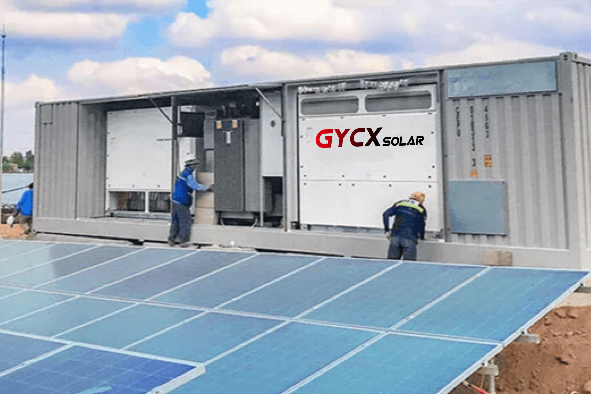
Reliable product quality
We use first-class manufacturing technology and advanced production equipment, strictly control the quality of each production link. En outre, we have established a sound quality assurance system to ensure that every product meets the relevant standards and customer requirements, to provide customers with high-quality energy storage system products.
Strong technical strength
We have a professional research and development team, focusing on the research and development and innovation of energy storage technology, can provide comprehensive energy storage system solutions to meet the needs of different customers, with strong market competitiveness.
Good reputation and service attitude
We always adhere to the customer-centric service concept, providing a full range of services and support. In the field of energy storage systems, we have accumulated rich experience and have a professional service team, which can respond to customer needs in a timely manner and provide high-quality solutions and services.
Reasonable price and timely delivery
We adhere to a reasonable price strategy and efficient delivery cycle to provide cost-effective energy storage system products. En outre, we also provide flexible payment methods and fast logistics services to ensure the maximum benefit of our customers.
Conclusion
In industrial and commercial energy storage exploration, multiple solutions have emerged that have changed the energy systems and management of enterprises. These technologies help businesses navigate fluctuations in renewable energy, améliorer l'efficacité énergétique, and achieve a sustainable and cost-effective power supply.
Energy storage technologies show great potential in stabilizing power grids and integrating renewable energy sources, helping industries and commercial entities transition to a low-carbon economy and reduce greenhouse gas emissions and dependence on fossil fuels.
As the industry evolves, industrial and commercial energy storage innovations will drive significant advances, shaping a more resilient, efficient and environmentally friendly energy future. Solar cell manufacturers also offer the best solutions
